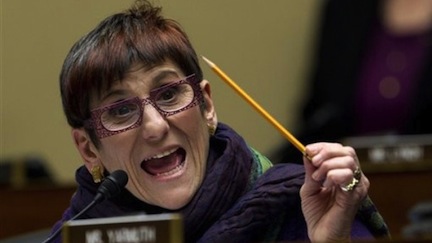Does conscience trump creed? It’s clear that some Catholic politicians, mostly of the Left, think so. How else can they call themselves Catholic even as they actively campaign to promote abortion and same-sex “marriage”?
Deceptively named groups such as Catholics for Choice (CFC) extol the “primacy of conscience” with regard to abortion. (Conscience, in fact, is the name of the organization’s quarterly magazine.)
Frances Kissling, the former president of Catholics for a Free Choice (re-branded as CFC), has made the erroneous claim that:
the Catholic Church officially teaches that the conscience of an individual is supreme. If you carefully examine your conscience and then decide that an abortion is the most moral act you can do at this time, you are not committing a sin. You are not excommunicated and you do not need to tell it in confession, since in your case, abortion is not a sin.
This is clearly misleading, but some Catholic Democrats have taken Kissling’s advice to heart.
In 2004, forty-eight Catholic members of Congress, led by Rep. Rosa DeLauro (D-CT), signed a letter to the USCCB warning that the Church risked damaging its authority if the bishops decided to withhold Communion from legislators whose positions are at odds with Church doctrine.
A few years later, DeLauro took the lead in releasing a “Statement of Principles” from fifty-five Catholic Democrats, who proudly proclaimed themselves “part of the living Catholic tradition.”
And again, DeLauro cautioned the bishops not to use the Eucharist as a “political weapon against elected officials,” adding, “although we seek the Church’s guidance and assistance we believe also in the primacy of conscience.”
In his book, On Conscience, Pope Benedict acknowledges the primacy of conscience, but he also stresses that Catholics are obligated to form their consciences in accord with the truth, which for a real Catholic means: the teachings of the Church.
All Catholics must accept that judgments of individual conscience can be wrong and, therefore, can contradict each other – if every individual’s conscience were infallible, it would mean that there is no truth.
Indeed, a poorly formed conscience actually blinds a person to the demands of truth: “Rather than opening the way to the redemptive road to truth, it is an erroneous conscience that dispenses with truth.”
For the pope, the identification of conscience with superficial consciousness – the reduction of individuals to their subjectivity – does not liberate but enslaves: “It makes us totally dependent on the prevailing opinions.”
There would be no moral norms at all if each person were able, with absolute certitude, to declare for himself what is morally right in every circumstance. What saves us from subjectivism is a well-formed conscience – and an understanding of what God has revealed to us.

Without this counterbalance to subjectivism, we are confronted with what Pope Benedict calls a “dictatorship of relativism.”
It’s difficult to say what these conscience issues will mean for the 2012 presidential election. Polls have shown that close to 60 percent of Catholics, against the teachings of the Church, support gay marriage.
But an equal percentage of Catholics oppose the Obama administration’s HHS mandates – requiring Catholic institutions to provide insurance coverage for contraception, sterilization, and abortion-inducing “morning-after” pills.
While liberal and traditional Catholics alike may disagree on what the Church teaches to be true, their shared belief in liberty of religion and conscience may actually provide a common ground for 2012.
While Pope Benedict of course maintains that one is bound to act in accord with a sure conscience, even if it is mistaken, he makes it clear that there must be sources for the judgment of conscience other than the subjective reflections of each individual.
He told a gathering of theologians that: “It is strange that some theologians have difficulty accepting the precise and limited doctrine of papal infallibility, but see no problem in granting de facto infallibility to everyone who has a conscience.”
In the pope’s analysis, “conscience” has come to be understood as a sort of “deification of subjectivity, a rock of bronze on which even the Magisterium is shattered. . . .consciences appears as subjectivity raised to the ultimate standard.”
The 2012 race will depend upon Catholic voters again voting their consciences. Unfortunately, in many cases, these are consciences shaped by a network of Catholic leftists including Catholic college theology professors and their campus colleagues, union organizers who are now affiliated with progressive Catholic advocacy organizations like Catholics United and Catholics in Alliance for the Common Good, and Democratic Party strategists.
There are even some working within the bishops’s own USCCB staff who put support for food stamps and union organizing on an equal moral plane with the sacredness of the life of the unborn.
These groups are determined to prove President Obama’s social justice appeal to Catholics. It’s a strategy that worked in 2008. It remains to be seen whether it will work as well this time.














